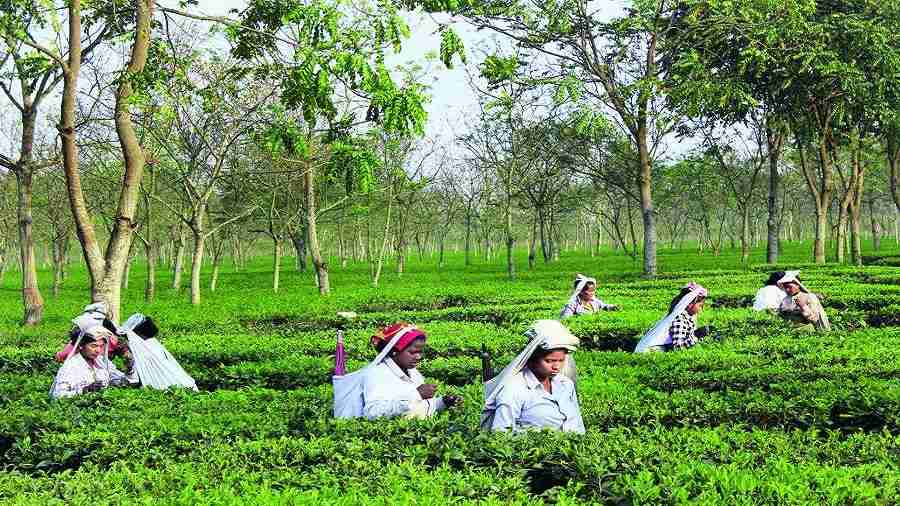The Mamata Banerjee government, which has been encouraging tourism in tea estates of north Bengal, is considering a proposal from small tea growers who plan to develop tourism infrastructure in their plantations.
Sources in the state tourism department said that in March the Confederation of Indian Small Tea Growers’ Associations (Cista), a national outfit, had sent a letter to the commerce and industries department mentioning that the growers could not partake of the benefits of tea tourism and allied business policies of the government.
As per the policy, tea estates can set up tourism infrastructure in the gardens and create alternative options for local employment and additional revenue generation.
However, they can use up to 15 per cent of their total land for this purpose, subject to a maximum area of 150 acres.
“Yesterday, the (commerce and industries) department forwarded the proposal to the tourism department mentioning that the small tea growers are keen to enjoy this facility that can be treated as village eco-tourism as their plantations are mostly in rural areas. As the policy caters to tea estates only, the tourism department has been asked to identify avenues to accommodate the small tea gardens in the tourism sector,” said a source.
In north Bengal, there are around 50,000 small tea plantations that contribute around 62 per cent of the total tea that is produced in the region. Altogether, 15 lakh people are directly and indirectly associated with this sector.
“In February, we had flagged the issue at the north Bengal business synergy conclave and were advised by the chief secretary to approach the commerce and industries department. Accordingly, we had sent the proposal. It seems the state government is considering our proposal. If the growers are included in the policy, it will give a boost to the rural areas of the tea-growing districts of north Bengal,” said Bijoygopal Chakraborty, Cista president.
There are small tea plantations in the Siliguri sub-division of Darjeeling, Islampur sub-division of North Dinajpur and in the districts of Jalpaiguri, Alipurduar and Cooch Behar.
Chakraborty said the small growers can come up with homestay accommodations, which would help augment their earnings and simultaneously create more places for tourists to put up.
“There are many tea plantations close to popular tourist spots. If the growers are allowed to build homestays, it will increase the number of rooms at those sites,” he said.











